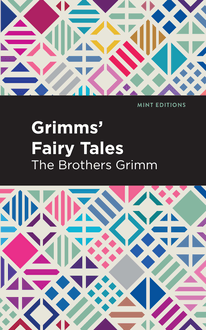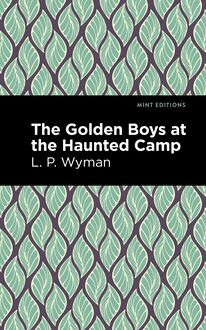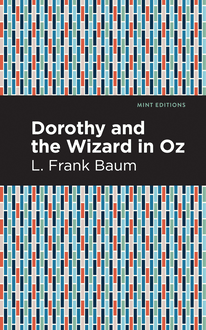-
 Univers
Univers
-
 Ebooks
Ebooks
-
 Livres audio
Livres audio
-
 Presse
Presse
-
 Podcasts
Podcasts
-
 BD
BD
-
 Documents
Documents
-
- Cours
- Révisions
- Ressources pédagogiques
- Sciences de l’éducation
- Manuels scolaires
- Langues
- Travaux de classe
- Annales de BEP
- Etudes supérieures
- Maternelle et primaire
- Fiches de lecture
- Orientation scolaire
- Méthodologie
- Corrigés de devoir
- Annales d’examens et concours
- Annales du bac
- Annales du brevet
- Rapports de stage
La lecture à portée de main
Vous pourrez modifier la taille du texte de cet ouvrage
Découvre YouScribe en t'inscrivant gratuitement
Je m'inscrisDécouvre YouScribe en t'inscrivant gratuitement
Je m'inscrisEn savoir plus
Vous pourrez modifier la taille du texte de cet ouvrage
En savoir plus

Description
“A personification of divine forgiveness.”-Jill P. May
“From American history books to Pirates of the Caribbean, the work of Howard Pyle continues to captivate us...”-Big Think
“...it has a significant, universal theme, and it presents the details of daily life in Germany of the thirteenth century accurately and unobtrusively, making the period real and alive.”-Malcolm Usrey
“He is as careful and painstaking and artistic with his children’s books as the very best novelist are with their novels...But best of them all is Pyle’s Otto of the Silver Hand. It is a story of German chivalry in the days of the robber barons.”-Willa Cather
Otto of the Silver Hand (1888), Howard Pyle’s first novel for children, is a grim yet empowering narrative of medieval Germany, following the adventures of a young hero caught between the power struggles of two families. With its gripping battle scenes, romance, and villainous warlords, this is a reading experience that continues to thrill over one hundred years after its initial publication.
Otto, a gentle boy born to a noble germanic family in the middle ages, has been raised in the compassionate seclusion of a monastery to protect him from the violent rivalries of his family. When the boy turns twelve years old he is retrieved back to Drachenhausen, his ancestral castle to begin his training in knighthood. Soon Otto discovers that his father, the Baron Conrad, a brutal robber baron, is in the midst of a savage vendetta with his the family of his slain foe, the Baron Fredrick. When Otto’s father and his knights are summoned to the Imperial Court the Fredrick clan attacks Castle Drachenhausen, burns it to the ground, and kidnaps the boy. Baron Henry, the heir of Fredrick’s clan, keeps Otto in the dungeon of his own fortress. Until his father arrives to rescue him, Otto experiences both terrible brutality and the gentle affections of Henry’s beautiful daughter. Through Otto’s ordeals and suffering he recognized the deficiencies of the human character, yet he rose above the wickedness with his gentleness and love.
With an eye-catching new cover, and professionally typeset manuscript, this edition of Otto of the Silver Hand is both modern and readable.
Sujets
Informations
| Publié par | Mint Editions |
| Date de parution | 17 novembre 2020 |
| Nombre de lectures | 0 |
| EAN13 | 9781513267081 |
| Langue | English |
| Poids de l'ouvrage | 1 Mo |
Informations légales : prix de location à la page 0,0300€. Cette information est donnée uniquement à titre indicatif conformément à la législation en vigueur.
Extrait
Otto of the Silver Hand
Howard Pyle
Otto of the Silver Hand was first published in 1888.
This edition published by Mint Editions 2020.
ISBN 9781513266640 | E-ISBN 9781513267081
Published by Mint Editions®
minteditionbooks.com
Publishing Director: Jennifer Newens
Project Manager: Gabrielle Maudiere
Design & Production: Rachel Lopez Metzger
Typesetting: Westchester Publishing Services
C ONTENTS F OREWORD 1. T HE D RAGON ’ S H OUSE 2. H OW THE B ARON W ENT F ORTH TO S HEAR 3. H OW THE B ARON C AME H OME S HORN 4. T HE W HITE C ROSS ON THE H ILL 5. H OW O TTO D WELT AT S T . M ICHAELSBURG 6. H OW O TTO L IVED IN THE D RAGON ’ S H OUSE 7. T HE R ED C OCK C ROWS ON D RACHENHAUSEN 8. I N THE H OUSE OF THE D RAGON S CORNER 9. H OW O NE - EYED H ANS C AME TO T RUTZ -D RACHEN 10. H OW H ANS B ROUGHT T ERROR TO THE K ITCHEN 11. H OW O TTO WAS S AVED 12. A R IDE FOR L IFE 13. H OW B ARON C ONRAD H ELD THE B RIDGE 14. H OW O TTO S AW THE G REAT E MPEROR A FTERWORD
F OREWORD
Between the far away past history of the world, and that which lies near to us; in the time when the wisdom of the ancient times was dead and had passed away, and our own days of light had not yet come, there lay a great black gulf in human history, a gulf of ignorance, of superstition, of cruelty, and of wickedness.
That time we call the dark or middle ages.
Few records remain to us of that dreadful period in our world’s history, and we only know of it through broken and disjointed fragments that have been handed down to us through the generations.
Yet, though the world’s life then was so wicked and black, there yet remained a few good men and women here and there (mostly in peaceful and quiet monasteries, far from the thunder and the glare of the worlds bloody battle), who knew the right and the truth and lived according to what they knew; who preserved and tenderly cared for the truths that the dear Christ taught, and lived and died for in Palestine so long ago.
This tale that I am about to tell is of a little boy who lived and suffered in those dark middle ages; of how he saw both the good and the bad of men, and of how, by gentleness and love and not by strife and hatred, he came at last to stand above other men and to be looked up to by all. And should you follow the story to the end, I hope you may find it a pleasure, as I have done, to ramble through those dark ancient castles, to lie with little Otto and Brother John in the high belfry-tower, or to sit with them in the peaceful quiet of the sunny old monastery garden, for, of all the story, I love best those early peaceful years that little Otto spent in the dear old White Cross on the Hill.
Poor little Otto’s life was a stony and a thorny pathway, and it is well for all of us nowadays that we walk it in fancy and not in truth.
Chapter 1
T HE D RAGON ’ S H OUSE
Up from the gray rocks, rising sheer and bold and bare, stood the walls and towers of Castle Drachenhausen. A great gate-way, with a heavy iron-pointed portcullis hanging suspended in the dim arch above, yawned blackly upon the bascule or falling drawbridge that spanned a chasm between the blank stone walls and the roadway that winding down the steep rocky slope to the little valley just beneath. There in the lap of the hills around stood the wretched straw-thatched huts of the peasants belonging to the castle—miserable serfs who, half timid, half fierce, tilled their poor patches of ground, wrenching from the hard soil barely enough to keep body and soul together. Among those vile hovels played the little children like foxes about their dens, their wild, fierce eyes peering out from under a mat of tangled yellow hair.
Beyond these squalid huts lay the rushing, foaming river, spanned by a high, rude, stone bridge where the road from the castle crossed it, and beyond the river stretched the great, black forest, within whose gloomy depths the savage wild beasts made their lair, and where in winter time the howling wolves coursed their flying prey across the moonlit snow and under the net-work of the black shadows from the naked boughs above.
The watchman in the cold, windy bartizan or watch-tower that clung to the gray walls above the castle gateway, looked from his narrow window, where the wind piped and hummed, across the tree-tops that rolled in endless billows of green, over hill and over valley to the blue and distant slope of the Keiserberg, where, on the mountain side, glimmered far away the walls of Castle Trutz-Drachen.
Within the massive stone walls through which the gaping gateway led, three great cheerless brick buildings, so forbidding that even the yellow sunlight could not light them into brightness, looked down, with row upon row of windows, upon three sides of the bleak, stone courtyard. Back of and above them clustered a jumble of other buildings, tower and turret, one high-peaked roof overtopping another.
The great house in the centre was the Baron’s Hall, the part to the left was called the Roderhausen; between the two stood a huge square pile, rising dizzily up into the clear air high above the rest—the great Melchior Tower.
At the top clustered a jumble of buildings hanging high aloft in the windy space a crooked wooden belfry, a tall, narrow watch-tower, and a rude wooden house that clung partly to the roof of the great tower and partly to the walls.
From the chimney of this crazy hut a thin thread of smoke would now and then rise into the air, for there were folk living far up in that empty, airy desert, and oftentimes wild, uncouth little children were seen playing on the edge of the dizzy height, or sitting with their bare legs hanging down over the sheer depths, as they gazed below at what was going on in the court-yard. There they sat, just as little children in the town might sit upon their father’s door-step; and as the sparrows might fly around the feet of the little town children, so the circling flocks of rooks and daws flew around the feet of these air-born creatures.
It was Schwartz Carl and his wife and little ones who lived far up there in the Melchior Tower, for it overlooked the top of the hill behind the castle and so down into the valley upon the further side. There, day after day, Schwartz Carl kept watch upon the gray road that ran like a ribbon through the valley, from the rich town of Gruenstaldt to the rich town of Staffenburgen, where passed merchant caravans from the one to the other—for the lord of Drachenhausen was a robber baron.
Dong! Dong! The great alarm bell would suddenly ring out from the belfry high up upon the Melchior Tower. Dong! Dong! Till the rooks and daws whirled clamoring and screaming. Dong! Dong! Till the fierce wolf-hounds in the rocky kennels behind the castle stables howled dismally in answer. Dong! Dong!—Dong! Dong!
Then would follow a great noise and uproar and hurry in the castle court-yard below; men shouting and calling to one another, the ringing of armor, and the clatter of horses’ hoofs upon the hard stone. With the creaking and groaning of the windlass the iron-pointed portcullis would be slowly raised, and with a clank and rattle and clash of iron chains the drawbridge would fall crashing. Then over it would thunder horse and man, clattering away down the winding, stony pathway, until the great forest would swallow them, and they would be gone.
Then for a while peace would fall upon the castle courtyard, the cock would crow, the cook would scold a lazy maid, and Gretchen, leaning out of a window, would sing a snatch of a song, just as though it were a peaceful farm-house, instead of a den of robbers.
Maybe it would be evening before the men would return once more. Perhaps one would have a bloody cloth bound about his head, perhaps one would carry his arm in a sling; perhaps one—maybe more than one—would be left behind, never to return again, and soon forgotten by all excepting some poor woman who would weep silently in the loneliness of her daily work.
Nearly always the adventurers would bring back with them pack-horses laden with bales of goods. Sometimes, besides these, they would return with a poor soul, his hands tied behind his back and his feet beneath the horse’s body, his fur cloak and his flat cap wofully awry. A while he would disappear in some gloomy cell of the dungeon-keep, until an envoy would come from the town with a fat purse, when his ransom would be paid, the dungeon would disgorge him, and he would be allowed to go upon his way again.
One man always rode beside Baron Conrad in his expeditions and adventures a short, deep-chested, broad-shouldered man, with sinewy arms so long that when he stood his hands hung nearly to his knees.
His coarse, close-clipped hair came so low upon his brow that only a strip of forehead showed between it and his bushy, black eyebrows. One eye was blind; the other twinkled and gleamed like a spark under the penthouse of his brows. Many folk said that the one-eyed Hans had drunk beer with the Hill-man, who had given him the strength of ten, for he could bend an iron spit like a hazel twig, and could lift a barrel of wine from the floor to his head as easily as though it were a basket of eggs.
As for the one-eyed Hans he never said that he had not drunk beer with the Hill-man, for he liked the credit that such reports gave him with the other folk. And so, like a half savage mastiff, faithful to death to his master, but to him alone, he went his sullen way and lived his sullen life within the castle walls, half respected, half feared by the other inmates, for it was dangerous trifling with the one-eyed Hans.
Chapter 2
H OW THE B ARON W ENT F ORTH TO S HEAR
Baron Conrad and Baroness Matilda sat together at their morning meal below their raised seats stretched the long, heavy wooden table, loaded with coarse food—black bread, boiled cabbage, bacon, eggs, a great chine from a wild boar, sausages, such as we eat nowadays, and flagons an
-
 Univers
Univers
-
 Ebooks
Ebooks
-
 Livres audio
Livres audio
-
 Presse
Presse
-
 Podcasts
Podcasts
-
 BD
BD
-
 Documents
Documents
-
Jeunesse
-
Littérature
-
Ressources professionnelles
-
Santé et bien-être
-
Savoirs
-
Education
-
Loisirs et hobbies
-
Art, musique et cinéma
-
Actualité et débat de société
-
Jeunesse
-
Littérature
-
Ressources professionnelles
-
Santé et bien-être
-
Savoirs
-
Education
-
Loisirs et hobbies
-
Art, musique et cinéma
-
Actualité et débat de société
-
Actualités
-
Lifestyle
-
Presse jeunesse
-
Presse professionnelle
-
Pratique
-
Presse sportive
-
Presse internationale
-
Culture & Médias
-
Action et Aventures
-
Science-fiction et Fantasy
-
Société
-
Jeunesse
-
Littérature
-
Ressources professionnelles
-
Santé et bien-être
-
Savoirs
-
Education
-
Loisirs et hobbies
-
Art, musique et cinéma
-
Actualité et débat de société
- Cours
- Révisions
- Ressources pédagogiques
- Sciences de l’éducation
- Manuels scolaires
- Langues
- Travaux de classe
- Annales de BEP
- Etudes supérieures
- Maternelle et primaire
- Fiches de lecture
- Orientation scolaire
- Méthodologie
- Corrigés de devoir
- Annales d’examens et concours
- Annales du bac
- Annales du brevet
- Rapports de stage




















